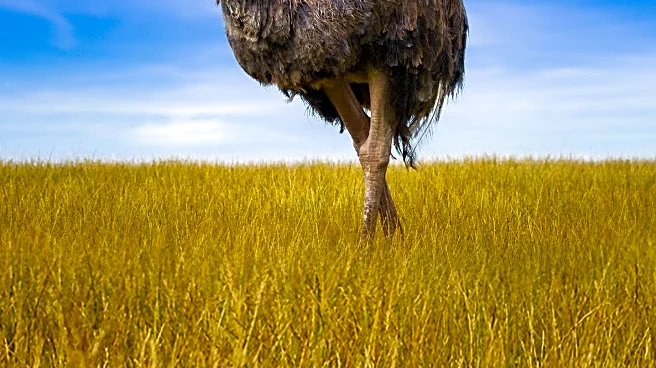What's Happening?
Canada's Supreme Court has decided not to hear an appeal concerning a federal agency's order to cull hundreds of ostriches at a farm in British Columbia. The Canadian Food Inspection Agency issued the
cull order on December 31 following the detection of a bird flu outbreak. The farm owners in Edgewood, British Columbia, have contested the order, arguing that the surviving ostriches show no signs of illness and should be spared. Despite their claims, the agency maintains that ostriches appearing healthy may still spread the disease. The agency has taken custody of the birds, and the farm owners allege that the agency and the Royal Canadian Mounted Police unlawfully removed them from the property. The Supreme Court had previously issued a stay on the cull until deciding whether to hear the case, but the stay has now been lifted.
Why It's Important?
The decision by Canada's Supreme Court not to hear the appeal has significant implications for the farm owners and the broader agricultural community. The cull order, based on concerns about the spread of bird flu, highlights the tension between public health measures and individual property rights. The farm owners face the loss of their livestock, which could have economic repercussions for their business. Additionally, the case underscores the challenges in balancing disease control with the rights of farmers, a situation that could resonate with agricultural stakeholders in the U.S. and other countries facing similar issues. The involvement of U.S. Health Secretary Robert Kennedy Jr. and Dr. Mehmet Oz, who offered alternative solutions, indicates international interest and potential diplomatic discussions regarding animal health and trade policies.
What's Next?
With the Supreme Court's decision, the cull of the ostriches is likely to proceed unless further legal or diplomatic interventions occur. The farm owners may seek other legal avenues or appeal to international bodies for support. The situation may prompt discussions among agricultural and health agencies in Canada and the U.S. about best practices for handling similar outbreaks. The offer from Dr. Mehmet Oz to relocate the ostriches to his Florida ranch could be explored as a potential solution, although logistical and regulatory challenges may arise. Stakeholders in the agricultural sector will be closely monitoring the outcome and any precedent it sets for future cases involving disease control and animal rights.
Beyond the Headlines
The case raises ethical questions about the treatment of animals in disease control efforts and the rights of property owners versus public health mandates. It also highlights the role of international figures in influencing domestic policy decisions, as seen with the involvement of U.S. officials. The broader implications for cross-border agricultural trade and disease management could lead to policy reviews and increased collaboration between countries. The situation may also spark public debate on the balance between economic interests and health safety, potentially influencing future legislation in both Canada and the U.S.










